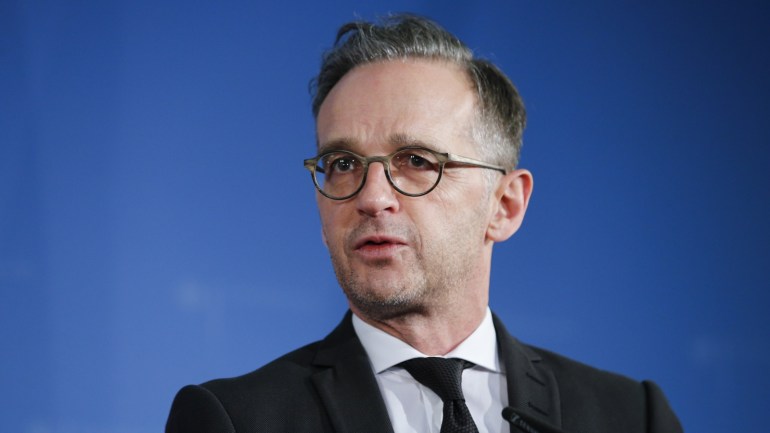The German Foreign Ministry called on Iran to rebuild the "destroyed" confidence regarding its nuclear program, while the Iranian Supreme Council for National Security called for unity in nuclear policies, amid a dispute between the government and the Shura Council.
German Foreign Ministry spokeswoman Maria Adebar said that more of what she called Tehran's violations of the nuclear agreement is unacceptable.
Adebar called on Iran to rebuild the destroyed confidence regarding its nuclear program, as she described it.
The German Foreign Minister Heiko Maas had said that the nuclear agreement with Iran was no longer sufficient, and called for its expansion to include, in particular, the Iranian ballistic programs and the Iranian role in the region, stressing that he understood these points with his French and British counterparts.
For his part, Iranian Foreign Minister Mohammad Javad Zarif said that his German counterpart should push the Europeans to fulfill their obligations in the nuclear deal before demanding a new agreement.
On the other hand, Saudi Foreign Minister Faisal bin Farhan Al Saud stressed the necessity of consulting with the Gulf states "fully" if the nuclear agreement between the United States and Iran is revived, warning that it is the only way to reach a sustainable agreement.
"Basically, what we expect is that we will fully consult with us and our regional friends about what is happening in relation to the negotiations with Iran," the minister told AFP.
Faisal bin Farhan indicated that he is confident that the US President-elect Joe Biden's pledge to transform Saudi Arabia into a "pariah" country on the background of its human rights record is nothing but statements for consumption during the elections, stressing that he will not take it further.
Faisal bin Farhan added that the kingdom would maintain its relations with the outgoing US President Donald Trump.
German Foreign Minister: The nuclear agreement with Iran must be expanded to include ballistic programs (Anadolu Agency)
Iranian differences
The Supreme Council for National Security in Iran called for unity of ranks regarding the country's nuclear policies, in the wake of a sharp disagreement between the government and the Shura Council over a parliamentary initiative calling for a halt to the implementation of nuclear commitments after the assassination of nuclear scientist Mohsen Fakhrizadeh.
On Wednesday, the Guardian Council approved the draft "strategic initiative to abolish sanctions," and President Hassan Rouhani has yet to sign it into law, but the government has expressed strong opposition to it.
The law calls on the government and the Atomic Energy Organization of Iran to "stop" visits by inspectors from the International Atomic Energy Agency, and "produce and store 120 kilograms of uranium enriched at 20% annually in favor of the peaceful needs of the national industry."
These two requests contradict Tehran's obligations under the agreement over its nuclear program and would complicate efforts to bring Washington back to the agreement after Trump withdrew from it in 2018.
The Supreme National Security Council said today that the bill "does not pose a specific problem with respect to national interests," considering that what harms national interests and causes concern is the controversy that has damaged the location and stature of the judicial bodies in the country.
The council condemned "recent statements and positions ... that sacrificed national interests to the sake of partisan interests and carried no benefit for the country and sent the wrong message" to Iran's opponents.

